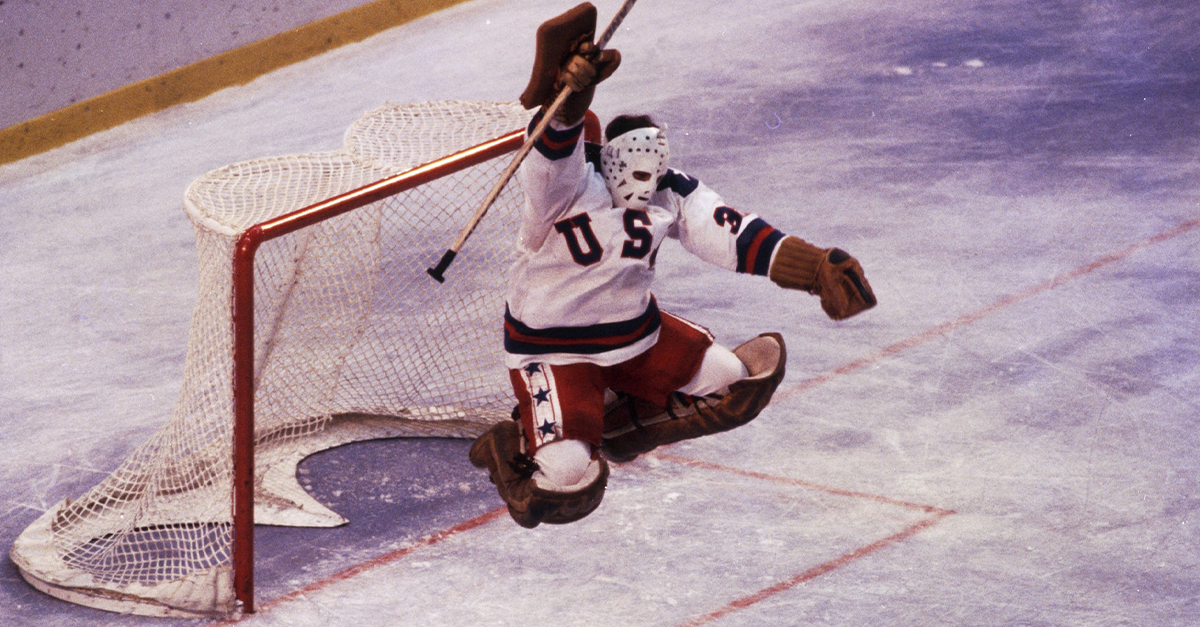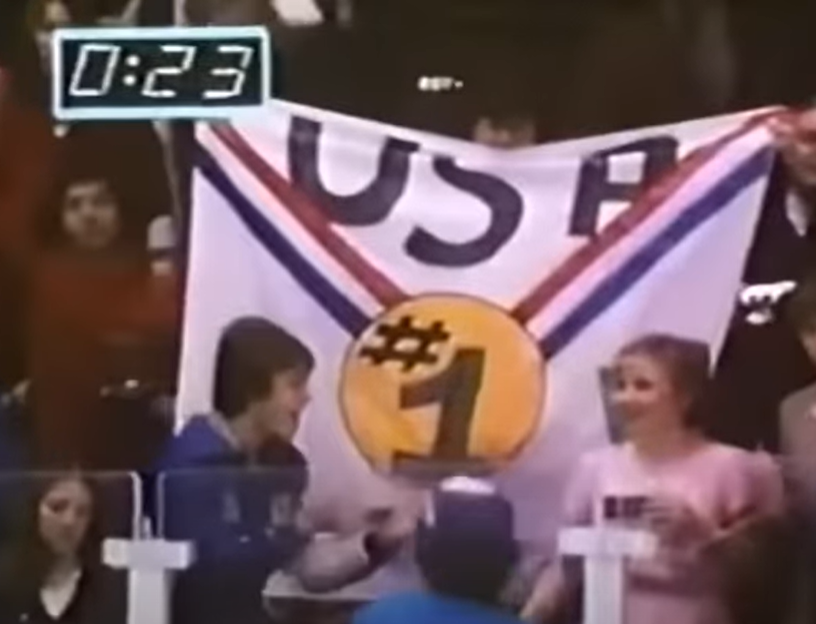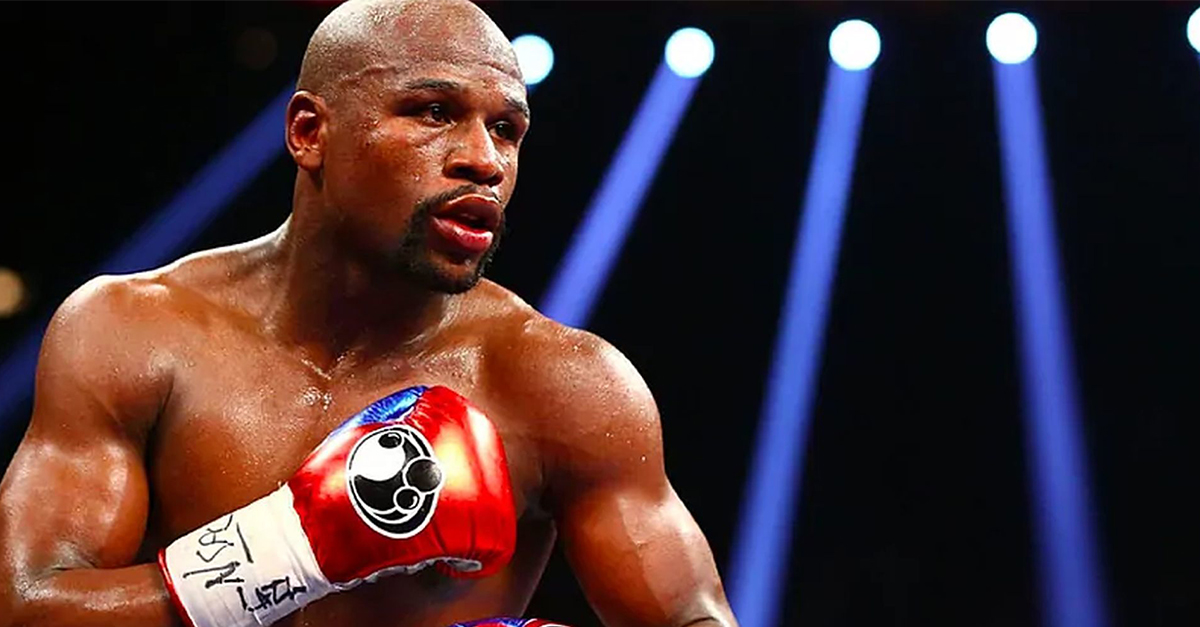A Coach With Unexpected Methods
The 1980 Olympics were intense for more than one reason. But one of the biggest surprises was when the US hockey team beat out the expected favorites, the Soviets. Known widely as the “Miracle On Ice”, read on to discover how they landed this major win.
The Match Of The Century
The 1980s Olympics were well underway by the time the US faced the Soviet Union on February 22. At that point, the Soviet Union had won five gold medals at previous Games. Anyone watching the games knew the US was at a disadvantage. And there was more setting the Soviets up for a win.
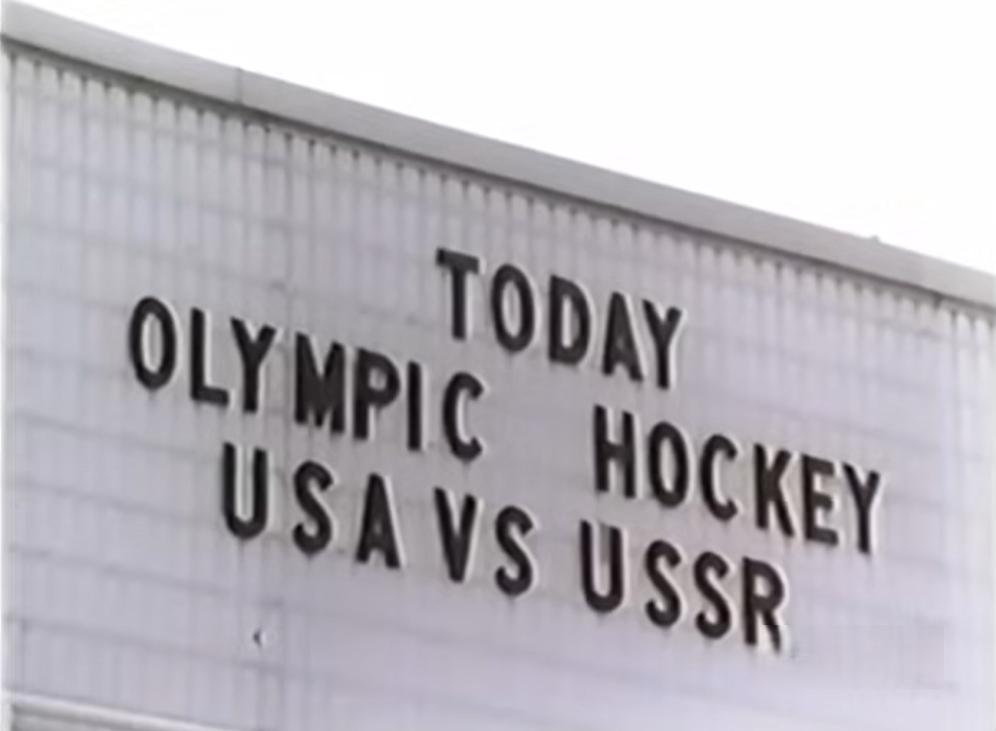 Filmways Television, Miracle on Ice (1981)
Filmways Television, Miracle on Ice (1981)
Heading Into The Game At A Disadvantage
The results of the game seemed clear far before the actual game day. The two sides were playing on vastly different levels. Journalist Kevin Allen said, “Some of the guys on the Soviet team were athletes that should have been NHL stars”. The talent that ran high among the Soviets wasn’t there in the US players.
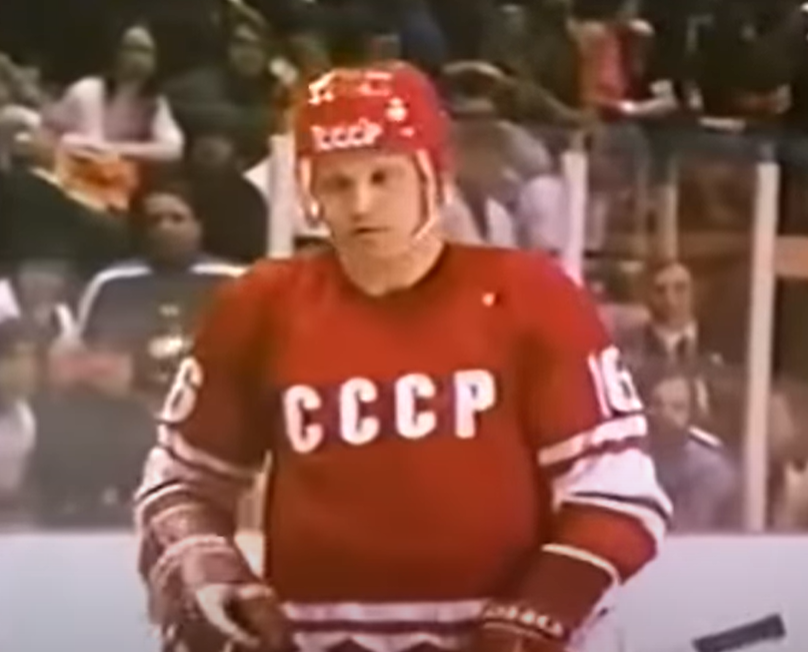 Filmways Television, Miracle on Ice (1981)
Filmways Television, Miracle on Ice (1981)
Their Youth Was To Their Disadvantage—So Everyone Thought
Team USA was inexperienced. They were young and recent college graduates, and they had a lot to prove when they played on the international stage of the Olympics. The average age of the players was 21.5, and each one of them had been specially chosen to play in the Games. Contrary to popular belief, they were not a “ragtag bunch of guys”.
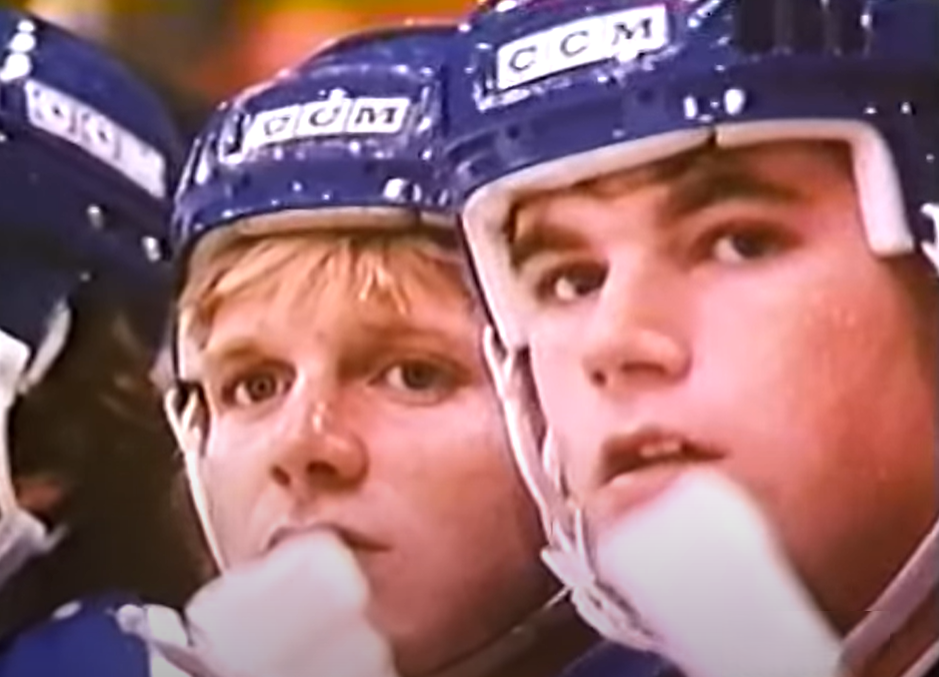 Filmways Television, Miracle on Ice (1981)
Filmways Television, Miracle on Ice (1981)
The Coach That Made The Team Who They Were
Several things combined to give the US an underdog advantage, and they worked hard to get to the top. They were coached by an eccentric coach, Herb Brooks, who also assembled the team. With all the inexperience he had on his hands, Brooks had to employ some unique tactics to prepare his athletes to take the win.
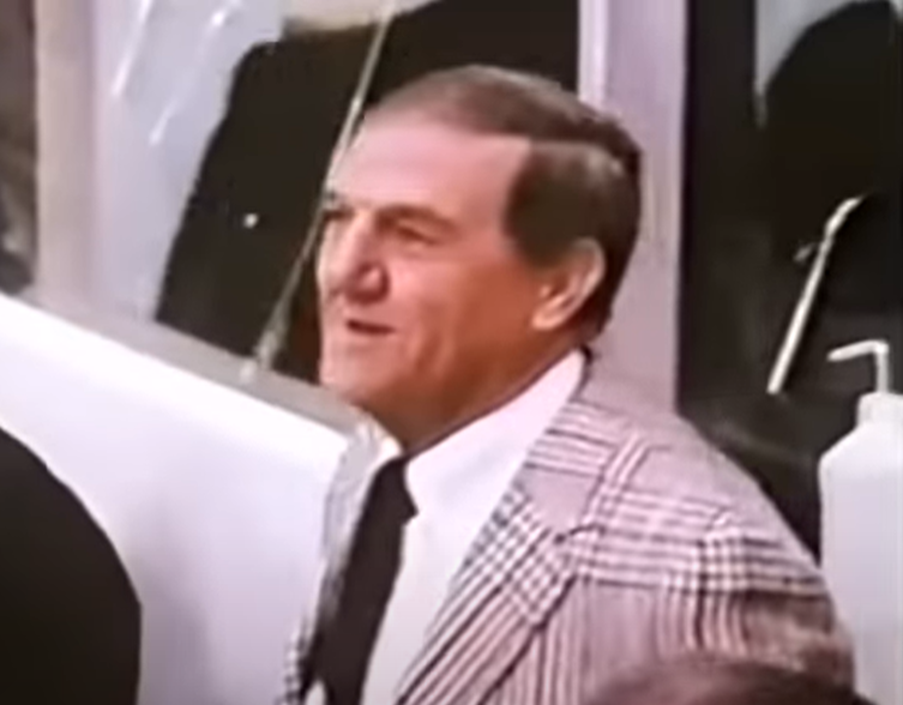 Filmways Television, Miracle on Ice (1981)
Filmways Television, Miracle on Ice (1981)
He Had Strange Methods
Brooks focused intensely on teamwork and functioning together as a single unit. He was known for being “really old school…You might say he was practicing amateur psychology without a license”. He lined up 61 games as time raced toward the Olympics so the guys could practice. After a bad game in Norway, Brooks had more than a few things to say.
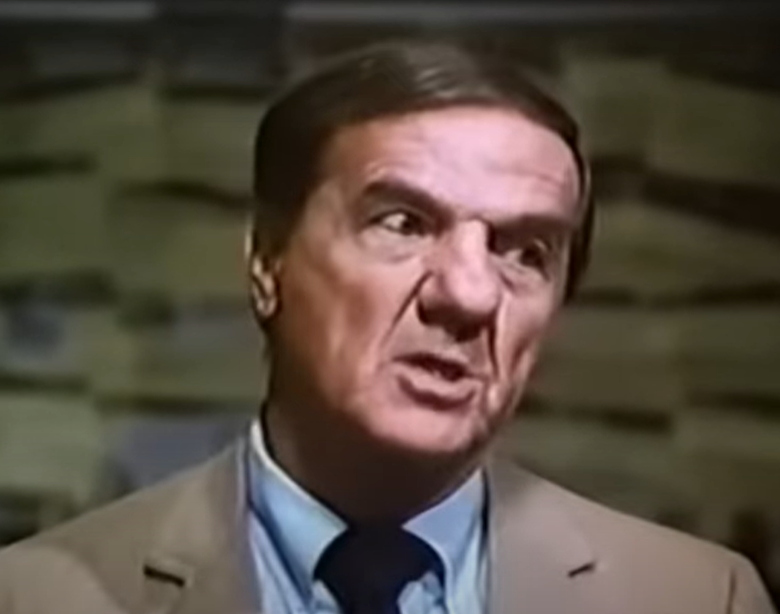 Filmways Television, Miracle on Ice (1981)
Filmways Television, Miracle on Ice (1981)
He Didn’t Mince His Words
He was known for being tough, and the athletes he used to coach even coined a term for one of his favorite drills and punishments: Herbies. They consisted of interminable wind sprints meant to exhaust his athletes. After their loss in Norway, this is what the young players were subjected to. There was more to the tactic, though.
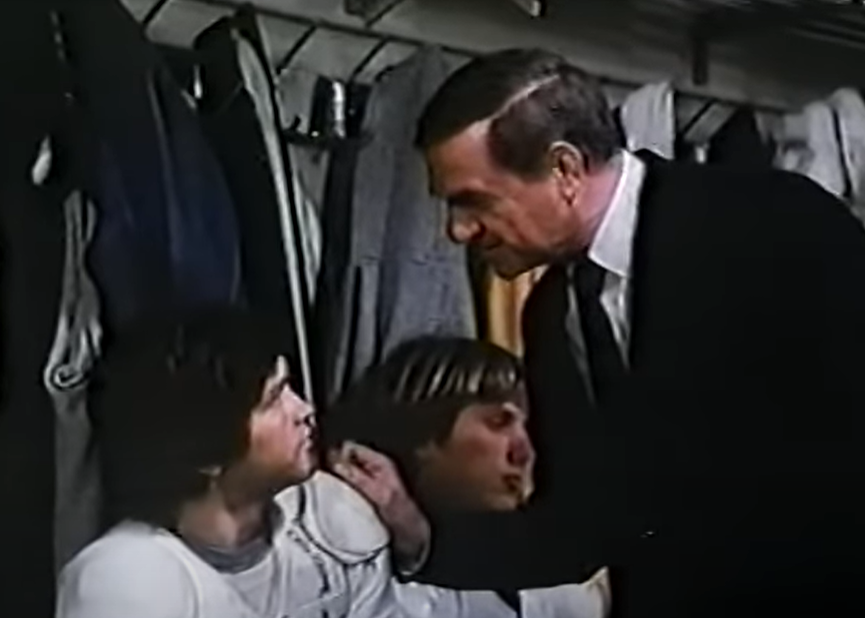 Filmways Television, Miracle on Ice (1981)
Filmways Television, Miracle on Ice (1981)
Using Their High Emotions To Their Advantage
Brooks knew that if he made his players angry at him, they would all band together to prove they could win on the international stage. His favorite thing to do was say, “This team isn’t talented enough to win on talent alone”. Not only that, but he would pick on players to heighten tensions. But his most well-known tactic was yet to come.
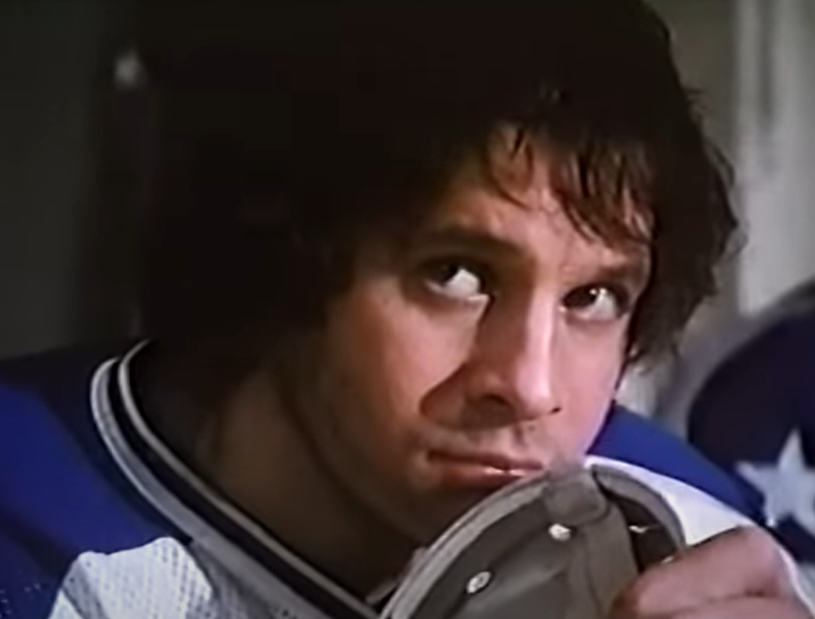 Filmways Television, Miracle on Ice (1981)
Filmways Television, Miracle on Ice (1981)
Demoralized To The Point Of Near Failure
After a 10-3 loss to the Soviets during the last exhibition game prior to the official Olympics, Brooks played his last card. The goalie during the exhibition game, Jim Craig, was demoralized after the loss. Brooks only made him feel worse by claiming he’d erred in letting him take the net. Craig was so enraged that he vowed to never lose again.
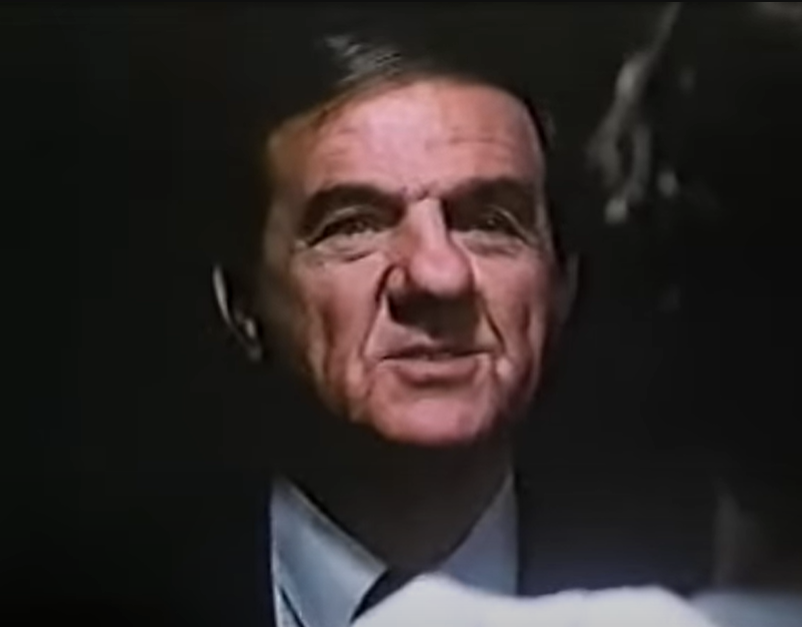 Filmways Television, Miracle on Ice (1981)
Filmways Television, Miracle on Ice (1981)

History's most fascinating stories and darkest secrets, delivered to your inbox daily.
There Was No Turning Back
When game day rolled around, the US was as ready as they were going to get. The Olympics took place in Lake Placid, New York, and the underdog players had already made a splash. They beat Sweden in a draw and stole the win from Czechoslovakia in a 7-3 victory. That was just the start of their surprising streak.
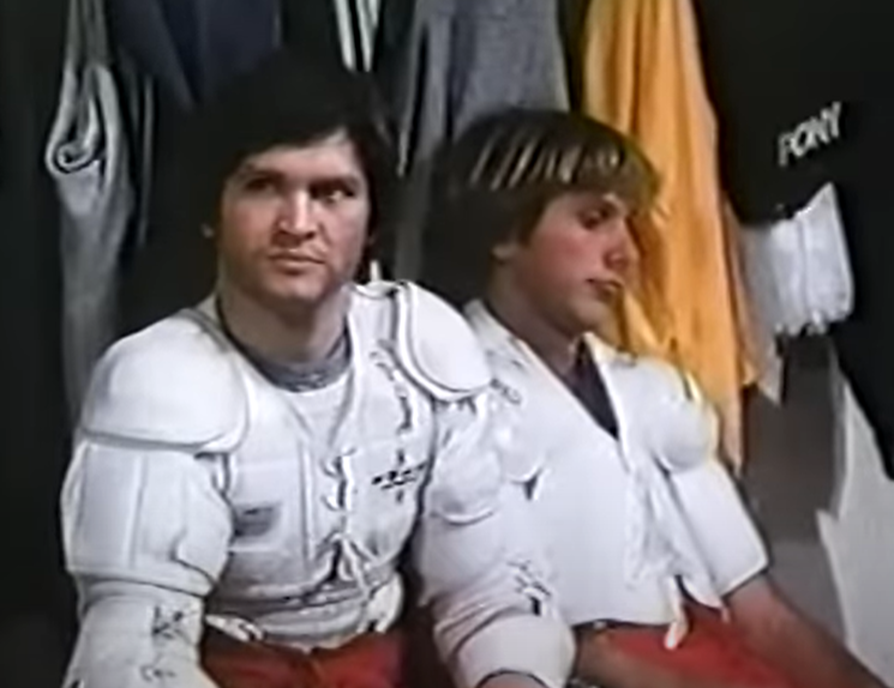 Filmways Television, Miracle on Ice (1981)
Filmways Television, Miracle on Ice (1981)
A New Tactic To Motivate The Players
Before the game, Brooks made a shocking shift in his coaching style. He went from harsh and critical to something akin to sentimental and kind. He read a note he’d written for the players, “You were born to be a player. You were meant to be here. This moment is yours”. And he truly believed what he said as he sent his athletes out to play.
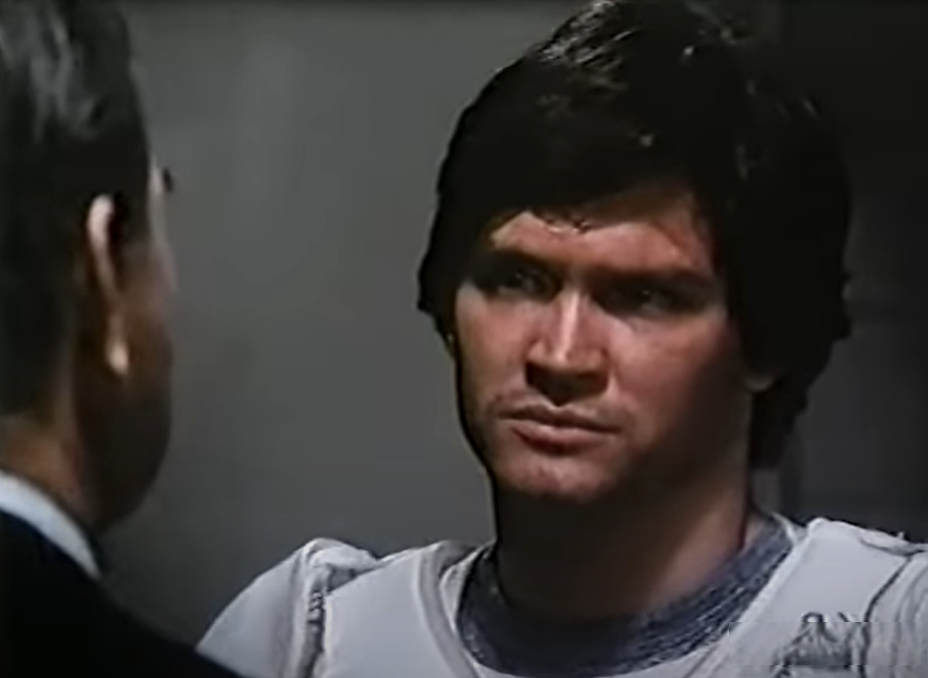 Filmways Television, Miracle on Ice (1981)
Filmways Television, Miracle on Ice (1981)
The Face-Off That Caught Everyone’s Attention
The two teams took the ice, and audiences were beyond excited to watch them face off. 36 million households in the US had their channels set to the epic Olympic battle. When the whistle blew and the first play began, things immediately looked dire.
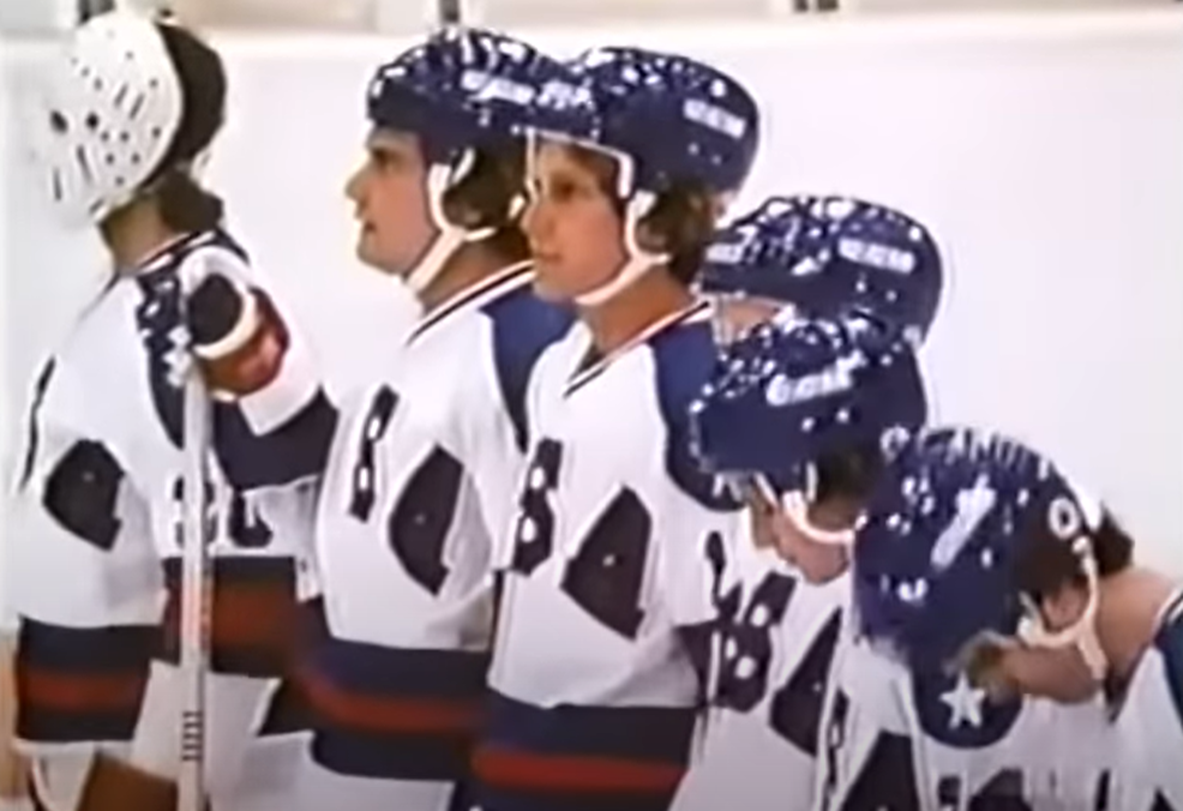 Filmways Television, Miracle on Ice (1981)
Filmways Television, Miracle on Ice (1981)
Starting At A Deficit
The Soviets took the first goal of the game, which was expected since the Americans had lost that same point during each of their games in Lake Placid. With the score at 1-0 for the opposing team, there was even more to prove for the US players. They weren’t going to go down easy.
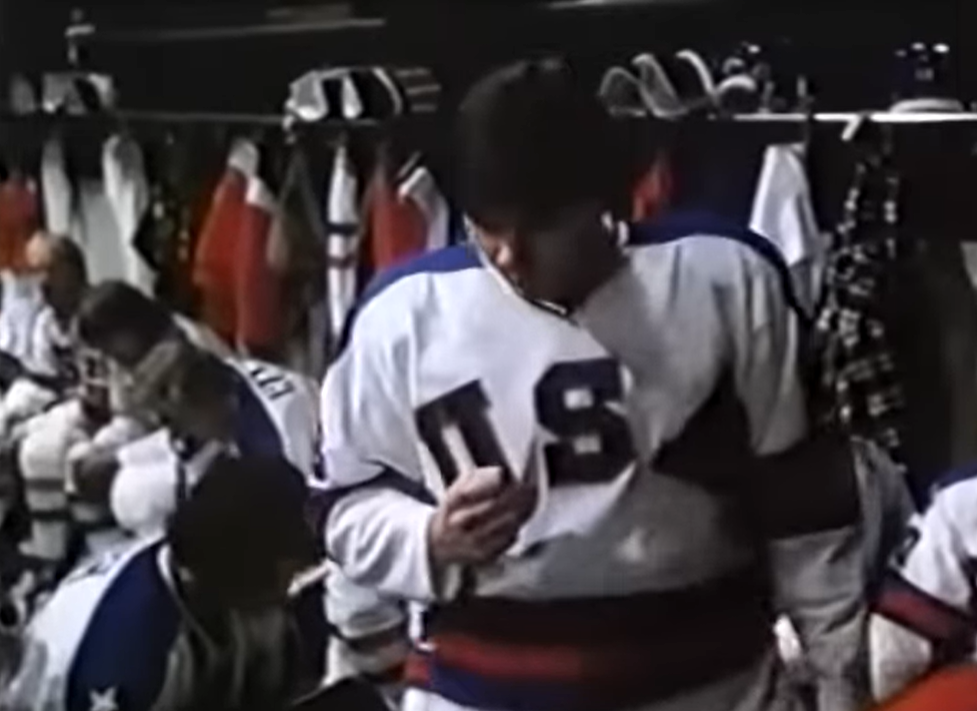 Filmways Television, Miracle on Ice (1981)
Filmways Television, Miracle on Ice (1981)
Tying Up The Game—Only To Be Down Another Point
Buzz Schneider made an intense slapshot that scored the Americans their first goal. Balancing the score was only the start of the game-long struggle for taking the lead. Minutes after Schneider’s goal, the Soviets claimed another, raising the stakes and the score to 2-1. It seemed like the first period was going to end on a low note for the US. Until…
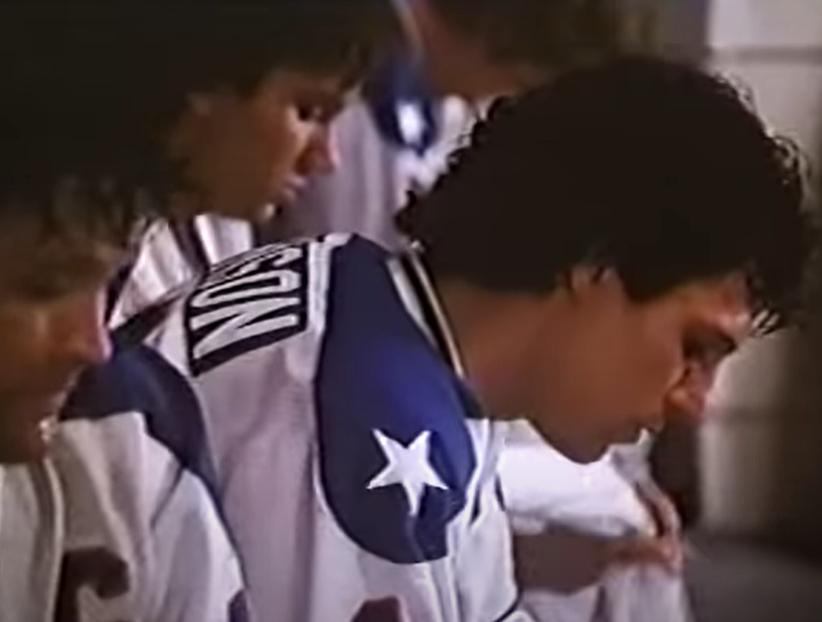 Filmways Television, Miracle on Ice (1981)
Filmways Television, Miracle on Ice (1981)
A Last-Ditch Effort To End The First Period
The first period was ending in mere seconds, and Mark Johnson took his shot. He caught the puck after legendary Soviet goalie Vladislav Tretiak deflected it. In a move that changed the fate of the game, Johnson scored. The winds changed at that moment, and for the first time, it looked like the US was going to come out on top.
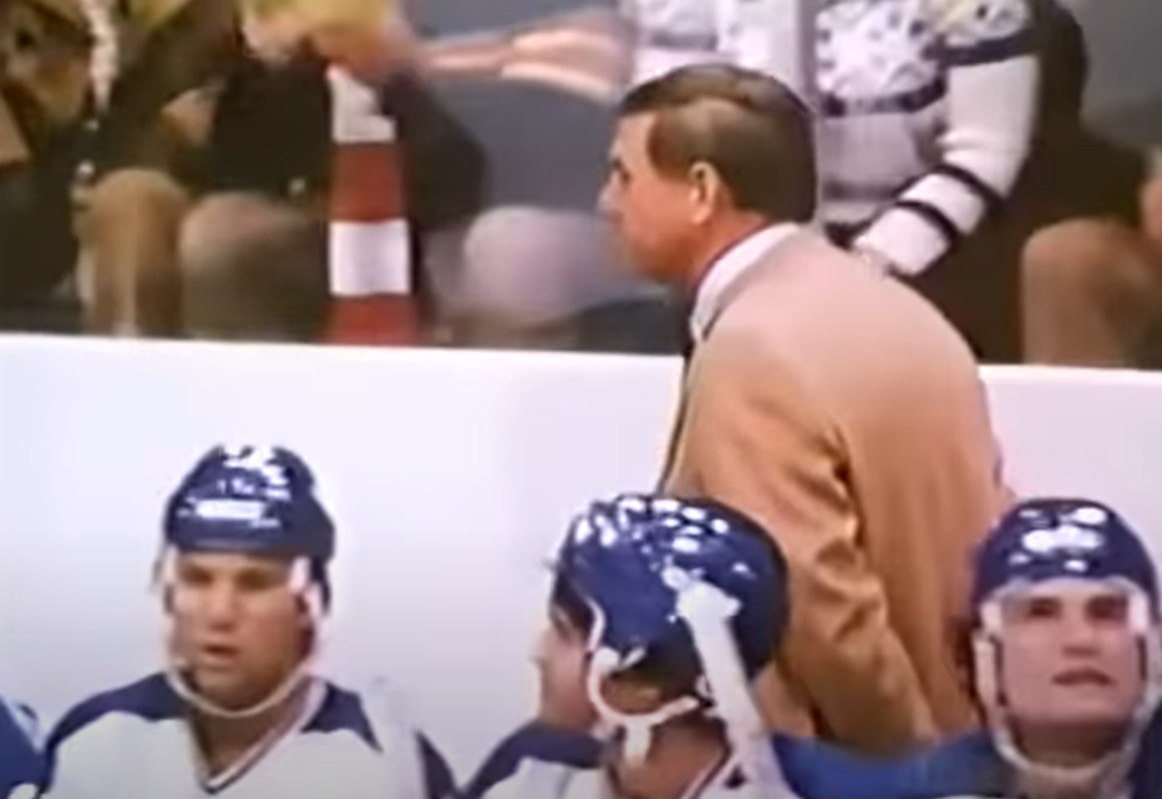 Filmways Television, Miracle on Ice (1981)
Filmways Television, Miracle on Ice (1981)
Starting Out Even
The second period began. The score was 2-2. Tretiak was benched after his performance in the first period. Johnson’s last-second point snag made the Soviet coach, Viktor Tikhonov, angry—and in his anger, he made a major mistake in changing the lineup. He exchanged “iron curtain goalie” Tretiak with their backup, Vladimir Myshkin.
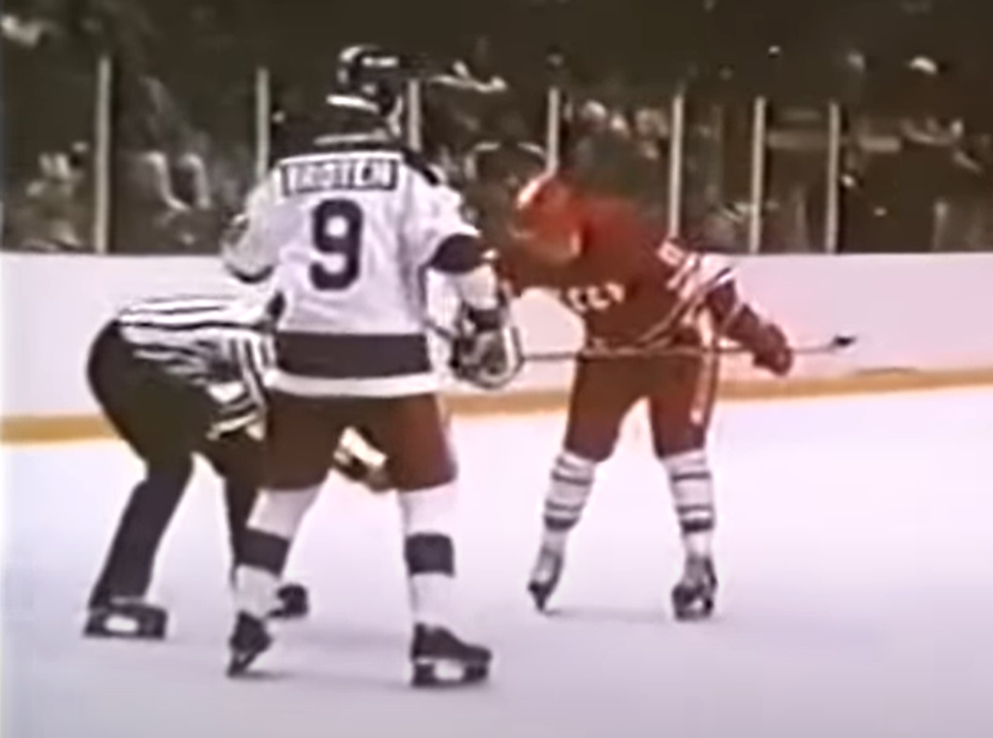 Filmways Television, Miracle on Ice (1981)
Filmways Television, Miracle on Ice (1981)
Another Stolen Point
The Soviets outshot the Americans 12-2, but despite taking so many shots at a goal, they only scored once during a power play, raising the score to 3-2. But they weren’t discouraged by this goal. Instead, they let this fuel their motivation to reclaim the lead and win the game.
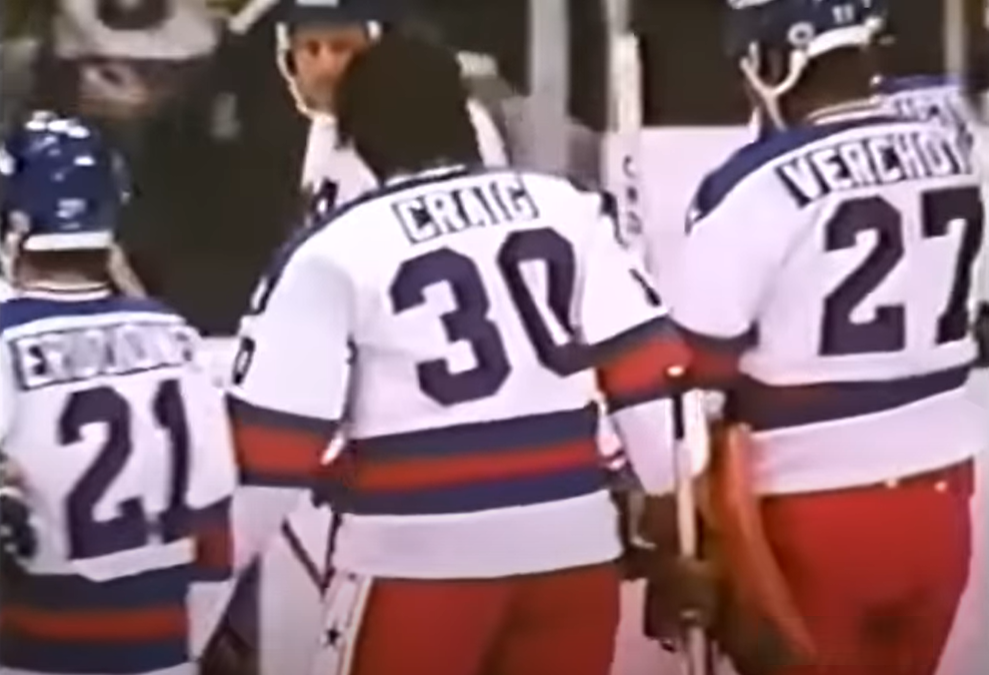 Filmways Television, Miracle on Ice (1981)
Filmways Television, Miracle on Ice (1981)
A Shocking Turn Of Events Became A Huge Advantage
When the third period started, a Soviet player immediately got a penalty for high-sticking. This was another major moment for the Americans, and they made the most of their opponent’s disadvantage. They had a rare opportunity during this power play, and Mike Ramsey and team captain Mike Eruzione pulled through.
 Filmways Television, Miracle on Ice (1981)
Filmways Television, Miracle on Ice (1981)
A Shoot And A Miss
First, Ramsey took a shot on Soviet backup goalie Myshkin. Myshkin stopped it, but the puck deflected back into play. Eruzione saw his opportunity and snagged it. He took his shot on the net, but the puck flew wide. As the seconds of the power play ticked down and their advantage began to slip through their gloves, the US players had to make a move.
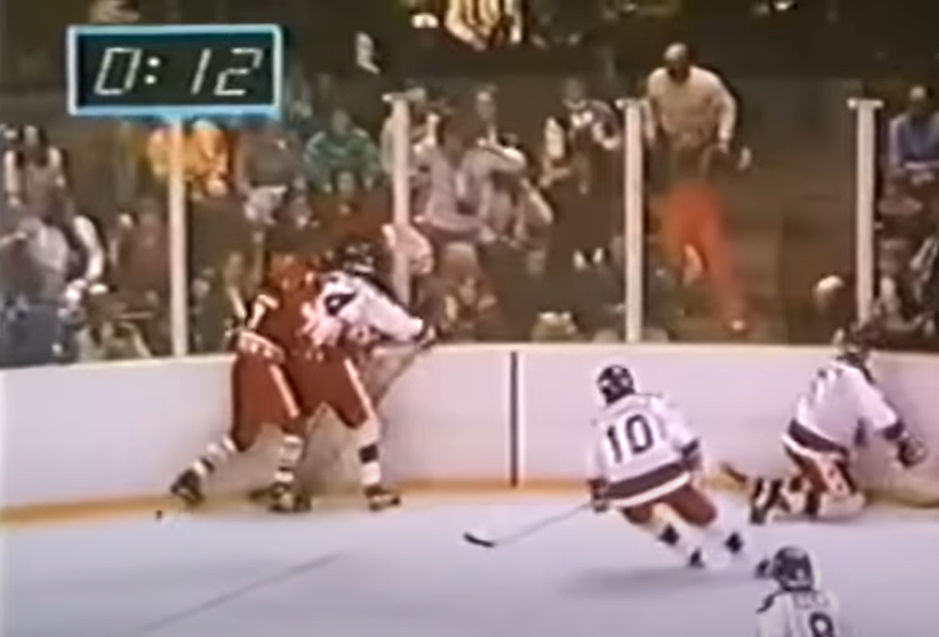 Filmways Television, Miracle on Ice (1981)
Filmways Television, Miracle on Ice (1981)
Teamwork Came In Clutch
In the last few moments of the power play, the Americans flew into the Soviet’s zone, Dave Silk and Mark Johnson leading the charge. But before Silk could take the shot, Valeri Vasiliev toppled him onto the ice. The puck skittered away, and anyone nearby could have grabbed it. Luckily, one of the Americans caught it first.
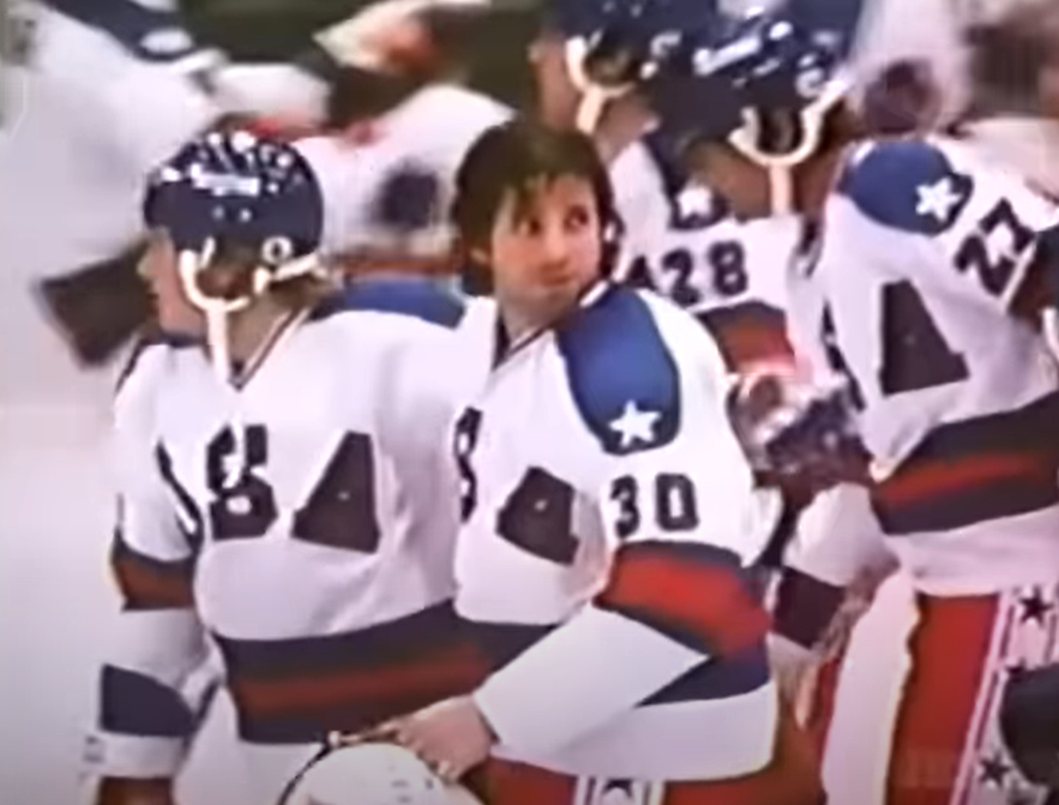 Filmways Television, Miracle on Ice (1981)
Filmways Television, Miracle on Ice (1981)
Balancing The Score Once Again
Johnson snagged it and saw his opportunity to make a move. He fired the puck toward the net. The last few seconds of the power play ticked down until—he scored as the power play ended. Johnson earned the US their third goal of the game. The score was 3-3, but it could still be anyone’s game.
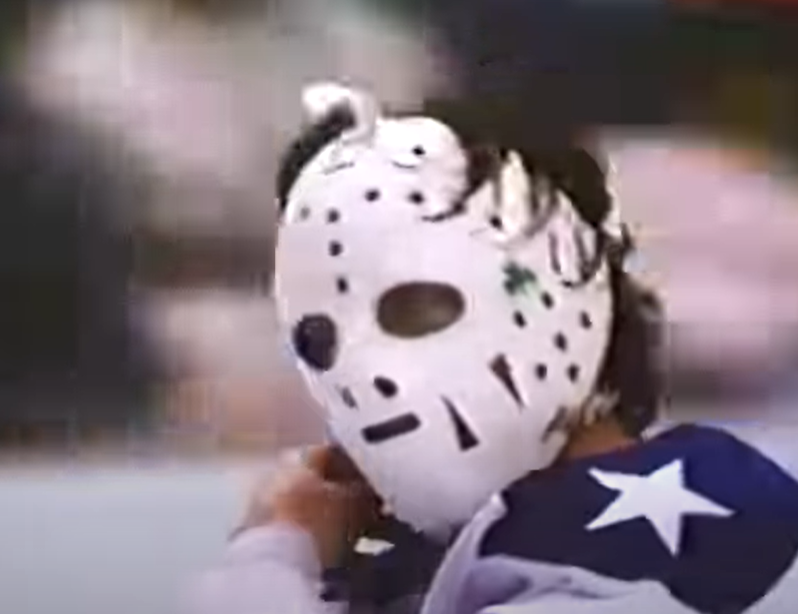 Filmways Television, Miracle on Ice (1981)
Filmways Television, Miracle on Ice (1981)
Setting The Stage
Mark Pavelich and Eruzione were in the Soviet zone. Pavelich didn’t have the upper hand on a good shot, so he passed to Eruzione. The team captain was unguarded in the high slot in front of the net, which gave him the prime placement to take the tie-breaking shot on the net. On top of that, he was fresh off the bench and had the energy to make a daring play.
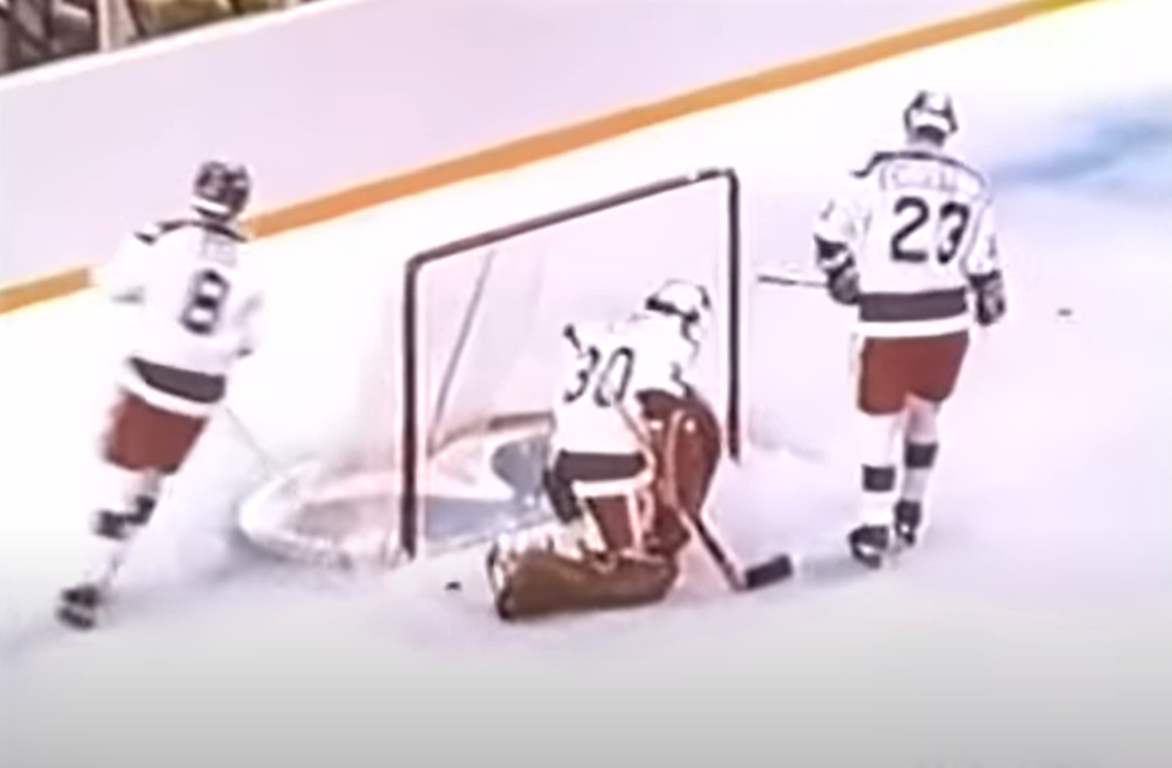 Filmways Television, Miracle on Ice (1981)
Filmways Television, Miracle on Ice (1981)
The Underdog’s Underdog Found His Footing
The Americans had to make this shot to break the tie, and this time, captain Eruzione came through. This was only his second shot of the entire game, with his first going wide earlier in the third period. He had a lot to prove, especially after all the berating from coach Brooks.
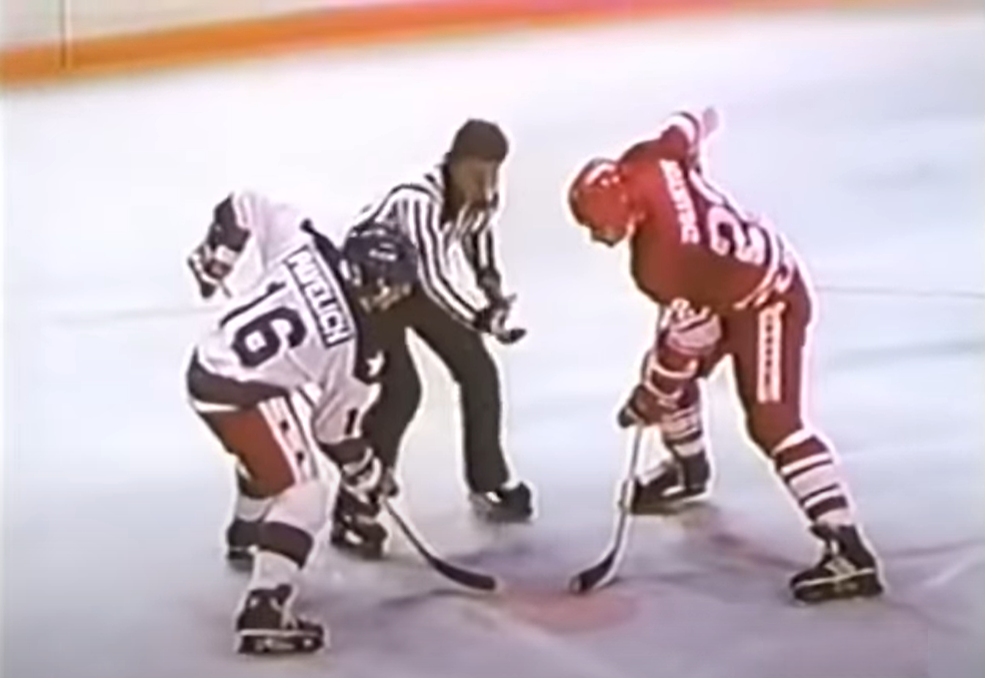 Filmways Television, Miracle on Ice (1981)
Filmways Television, Miracle on Ice (1981)
He Took The Shot
Eruzione set his sights on scoring on Myshkin, whose sight was blocked—screened—by Vasili Pervukhin, who was trying to make a defensive play for the puck. It was the perfect timing to shoot, and Eruzione seized it. He fired.
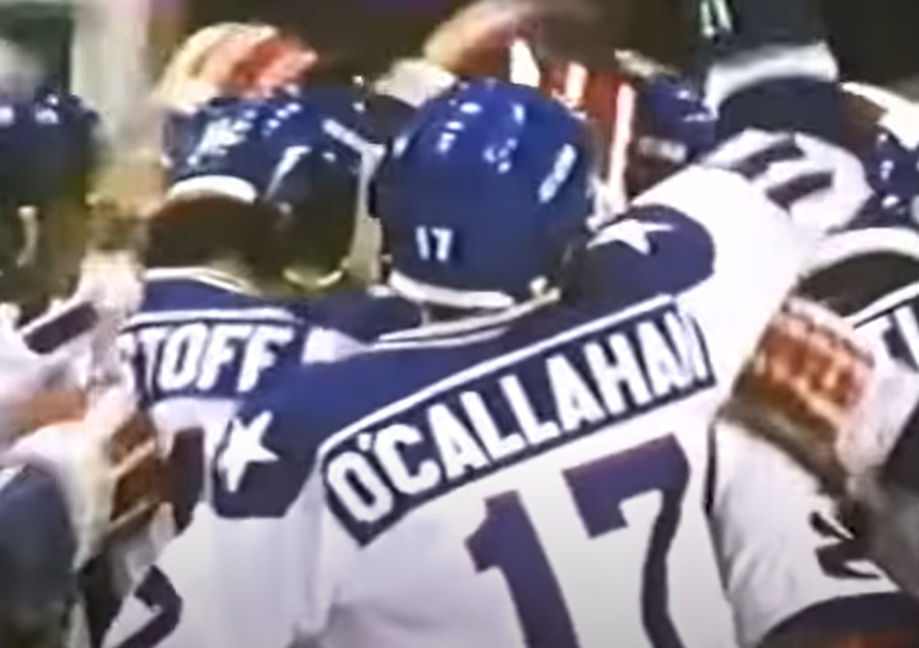 Filmways Television, Miracle on Ice (1981)
Filmways Television, Miracle on Ice (1981)
Skill And Months Of Practice Made This Possible
Eruzione made his comeback at that moment. His carefully positioned shot took the puck through a narrow margin between Myshkin’s pads and into the net. There was an uproar as the pick slid home and the score finally turned in the US team’s favor.
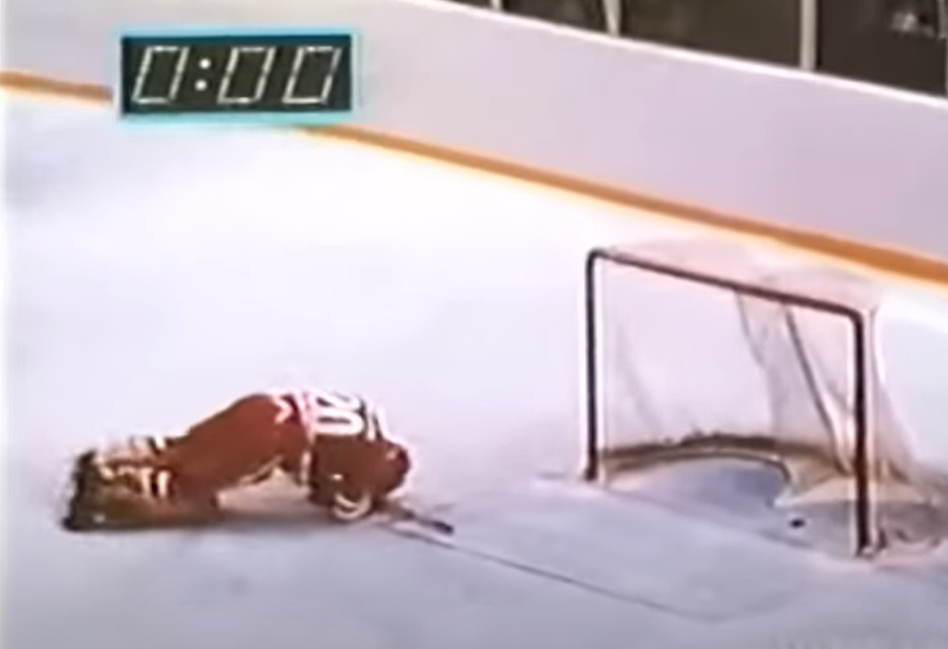 Filmways Television, Miracle on Ice (1981)
Filmways Television, Miracle on Ice (1981)
They Had To Hold On For Dear Life
The game wasn’t over yet. All the Americans had to do was last 10 whole minutes on the ice without letting the Soviets get another goal. But after losing their advantage, the Soviets became vicious in their attempts to take back the game. It was a struggle right down to the last second.
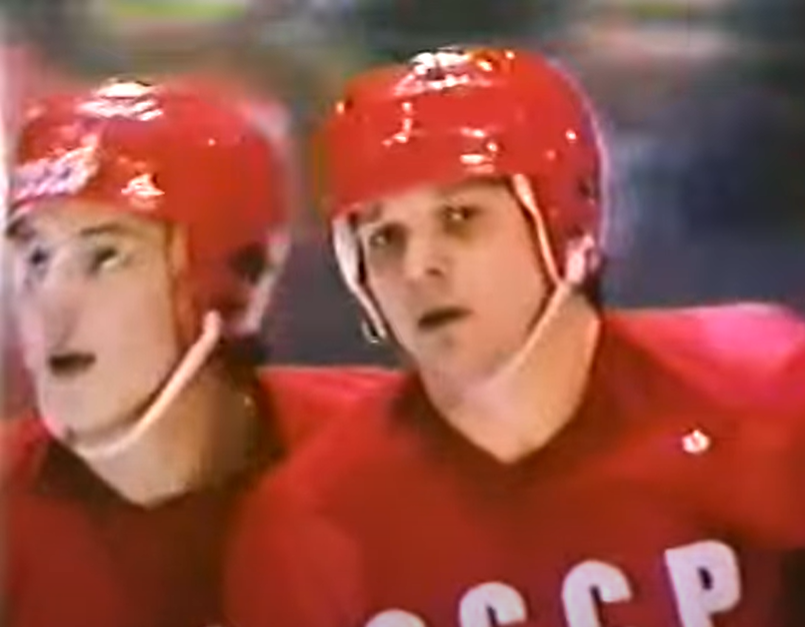 Filmways Television, Miracle on Ice (1981)
Filmways Television, Miracle on Ice (1981)
Time Stretched As The Game Continued
For viewers around the US, it was “the longest 10 minutes of their lives” as they watched the Americans battle it out against the Soviets. Mere moments after Eruzione broke the tie, the Soviets took a shot at the US goalie. The puck collided with the right post and shot off away from the goal, but the Soviets weren’t done yet.
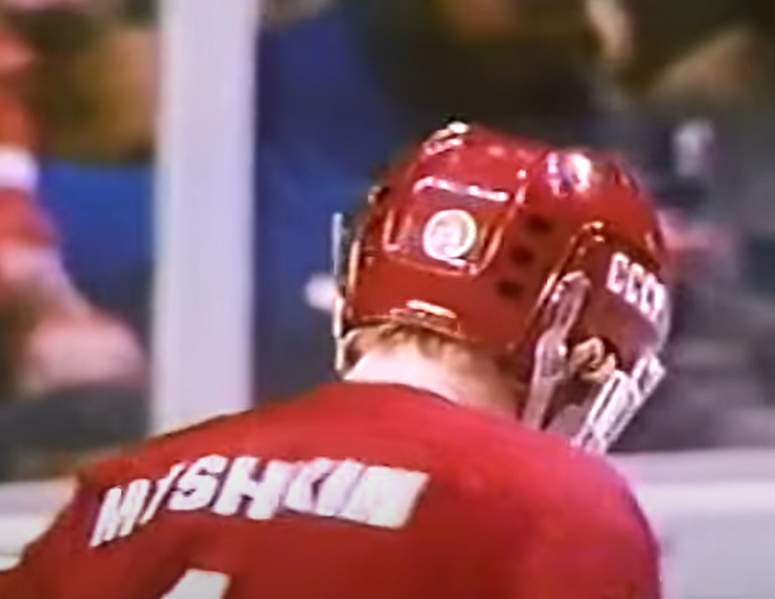 Filmways Television, Miracle on Ice (1981)
Filmways Television, Miracle on Ice (1981)
Desperation Took Root
The shots came wildly from the opposition, but rather than taking a defensive strategy, the US kept up their offensive. It was a rapid exchange of attacks on one another’s goalies. The Soviets were getting desperate, and Sergei Starikov even commented that they “were panicking” in those final minutes.
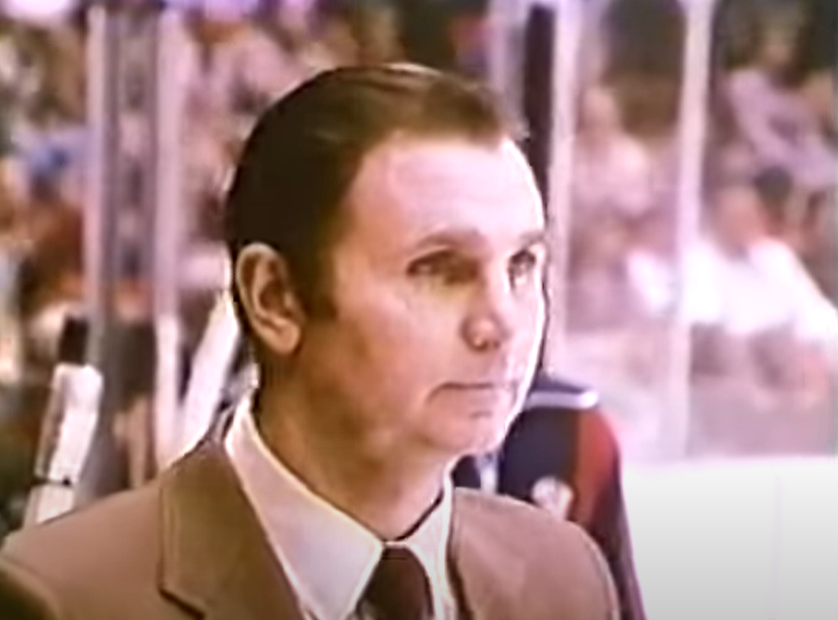 Filmways Television, Miracle on Ice (1981)
Filmways Television, Miracle on Ice (1981)
One Decision—Or A Lack Thereof—Sealed The Deal
Many expected Soviet coach Tikhonov to pull the goalie to get an additional offensive advantage on the ice. But they kept the goalie in the net. “Tikhonov didn’t believe in [pulling the goalie],” Starikov said after the game. But this might have been the last nail in the coffin, sealing the deal for an American victory.
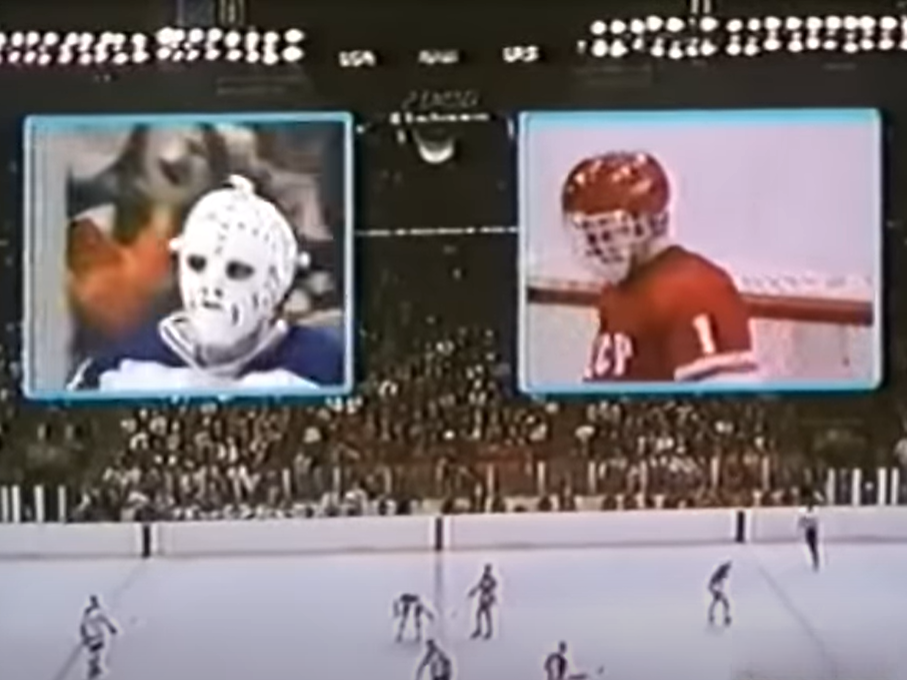 Filmways Television, Miracle on Ice (1981)
Filmways Television, Miracle on Ice (1981)
A Momentous Moment For Everyone Involved
As the game raced to a close, viewers watched on the edge of their seats. Announcer Al Michaels, who gave the play-by-play alongside former Montreal Canadiens goalie Ken Dryden, made some legendary comments about the events on the ice. As the Americans withstood Soviet aggression, Michaels made his most famous comment in history, “Do you believe in miracles? Yes!”
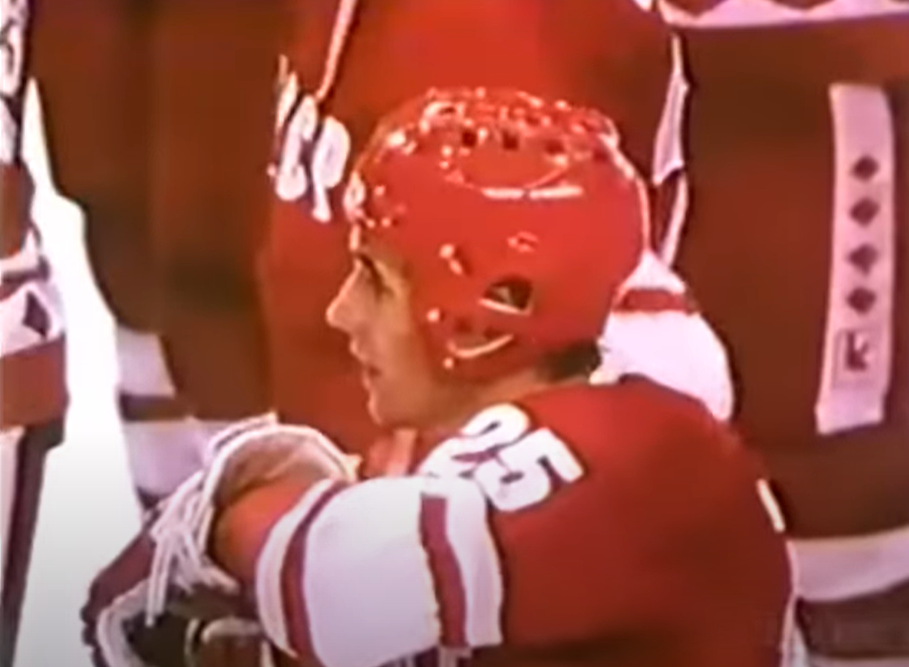 Filmways Television, Miracle on Ice (1981)
Filmways Television, Miracle on Ice (1981)
Close Call After Close Call
With less than 60 seconds left on the clock, the puck was back in the Americans’ zone. Vladimir Petrov sent his shot wide, and soon after, his shot on goal was kicked aside by US goalie Craig. At 20 seconds left, the Soviets made one last attempt at a goal, and there was a struggle for the puck as the seconds ticked down.
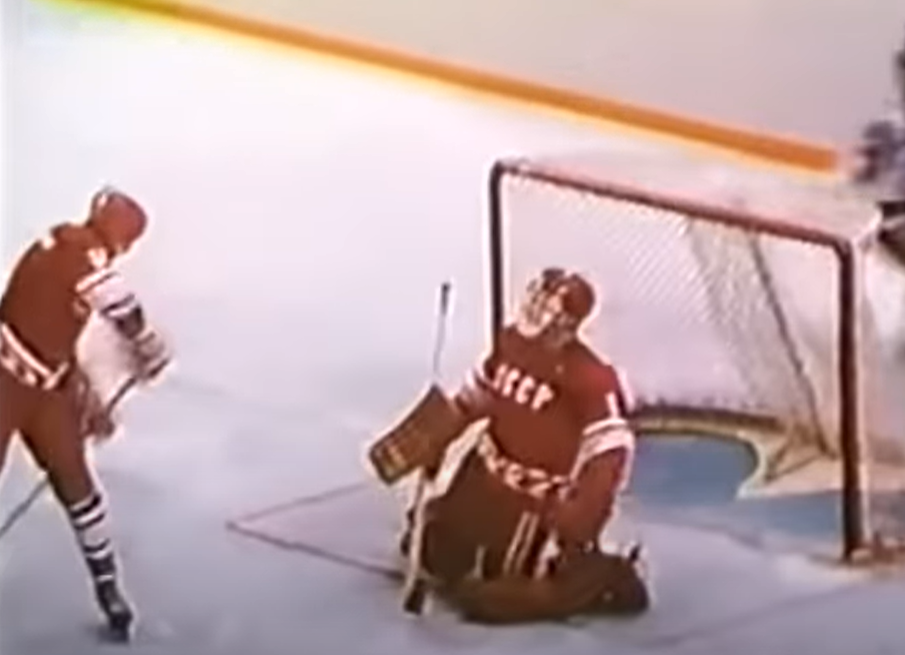 Filmways Television, Miracle on Ice (1981)
Filmways Television, Miracle on Ice (1981)
One Final Play As The Game Ended
Johnson snagged it and sent it to Ken Morrow, who rocketed down the ice toward the Russian zone. In the background, the crowd chanted the seconds as they counted down. 10 seconds remaining. Morrow passed to Silk, sending the puck over the blue line. Five. Four. Three. Two. One.
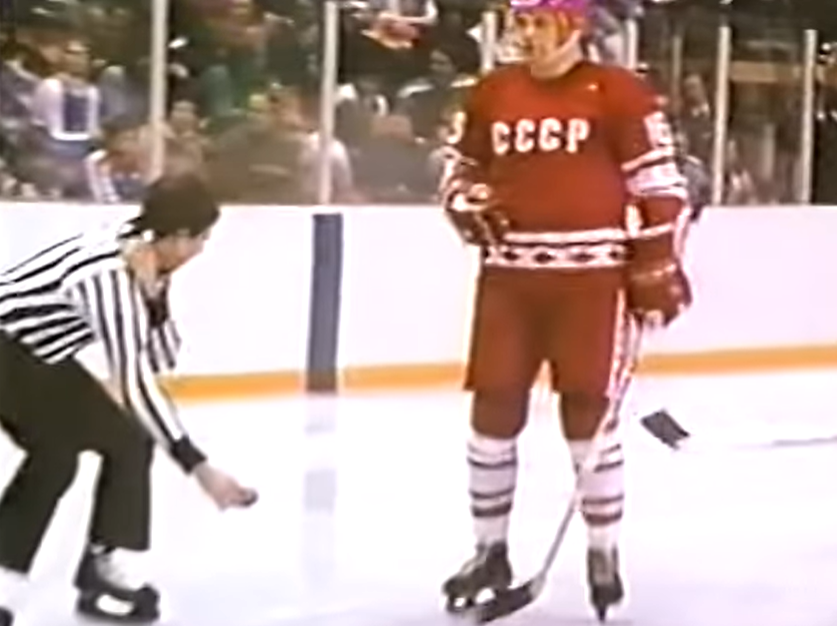 Filmways Television, Miracle on Ice (1981)
Filmways Television, Miracle on Ice (1981)
A Momentous 4-3 Win For The Olympic Unexpected Victors
The Americans had won against the defending gold medal champions. They were the underdogs out of left field, who would never let up again. While this game wasn’t the medal-deciding game of the Olympics, winning against the Soviets gave the young American team the confidence they needed, in both themselves and their coach, to take on Finland and secure the gold.
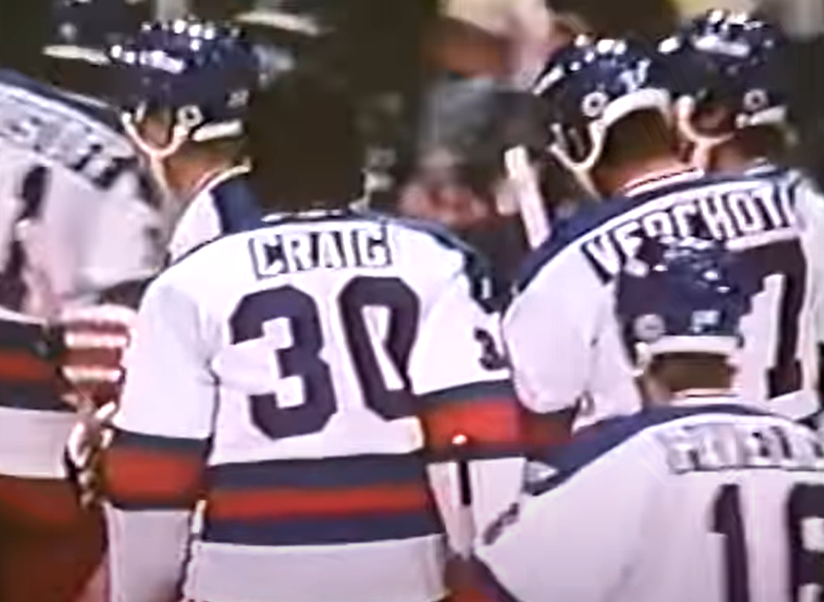 Filmways Television, Miracle on Ice (1981)
Filmways Television, Miracle on Ice (1981)
Winning Sent Everyone Into A Tizzy
The momentous occasion of winning against such a well-lauded team was a moment experienced by the entirety of the American population. The players celebrated on the ice, and the victory even pulled on the heartstrings of Coach Brooks. Reportedly, he fled to the locker room to cry over their hard-won win.
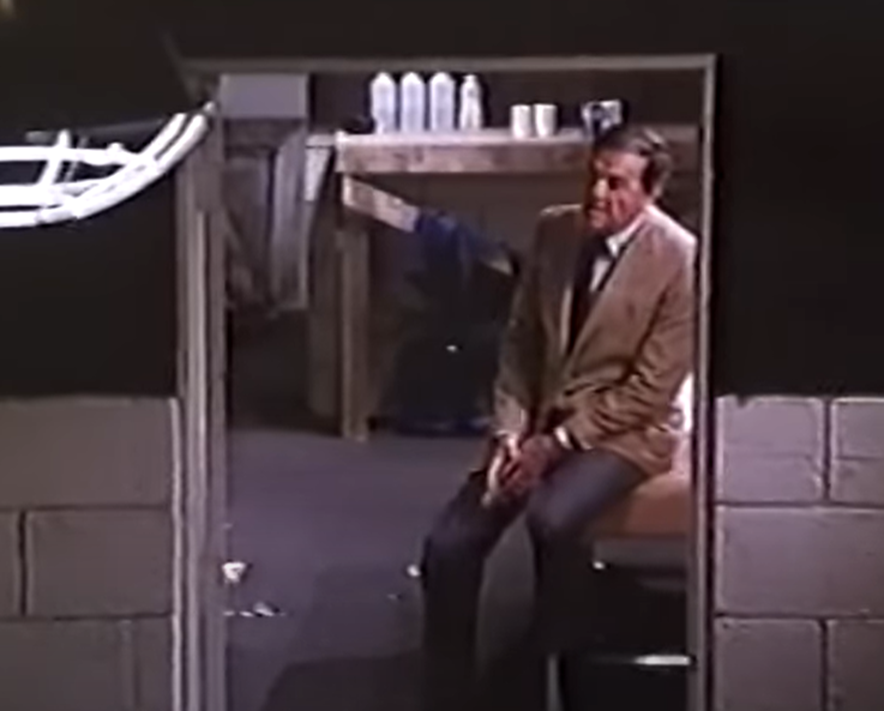 Filmways Television, Miracle on Ice (1981)
Filmways Television, Miracle on Ice (1981)
A Triumphant Night For The Young Goalie
Goalie Jim Craig had an incredibly successful night in goal. With 36 shots made while he was in goal, his save rate was .923, which is incredibly high. Journalist Kevin Allen said it was “one of the great goalie performances of all time”. And he wasn’t the only player who had a stellar game.
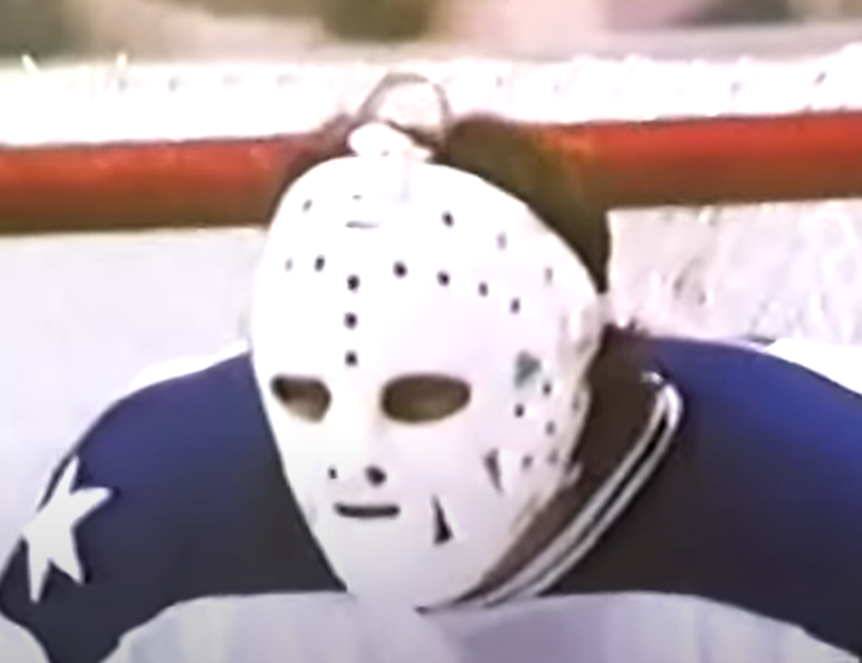 Filmways Television, Miracle on Ice (1981)
Filmways Television, Miracle on Ice (1981)
American Pride Hit The Streets
This game was monumental for the Americans. When the game was televised a few hours after the actual end of the match, viewers took to the streets to celebrate. Some waved flags and others sang “God Bless America” but everyone felt the intense pride of that moment.
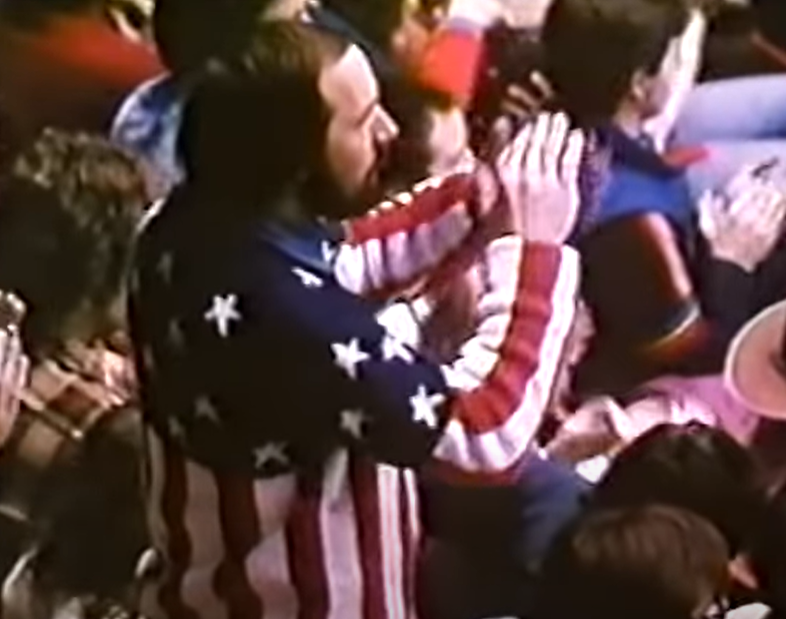 Filmways Television, Miracle on Ice (1981)
Filmways Television, Miracle on Ice (1981)
One Final Obstacle Kept Them From The Gold
The gold medal was within the US team’s grasp, but they still had to beat out Finland for the victory. Just like the game against the Soviets, the Americans came in at a disadvantage. They were down 2-1 by the end of the second period. It was then that Brooks brought back his brutal motivational techniques.
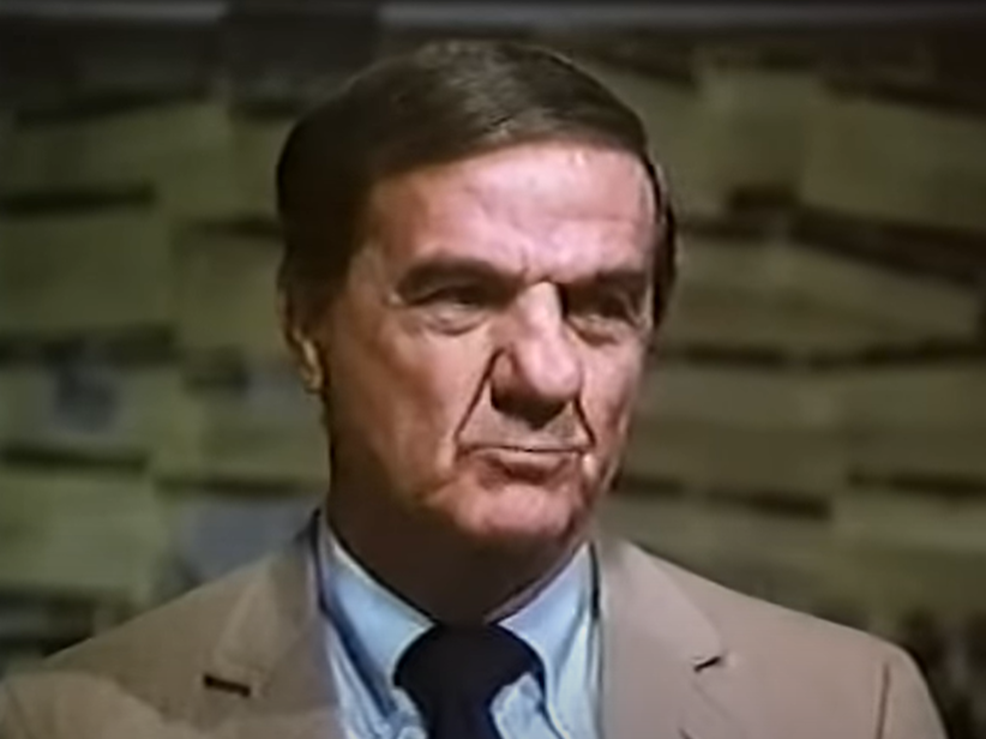 Filmways Television, Miracle on Ice (1981)
Filmways Television, Miracle on Ice (1981)
They Almost Choked At The Finish Line
The Americans had only one period to bring it all back to win it all. But they had to step up and play like they meant to win. Brooks said to his athletes, “If you lose this game, you’ll take it to your [...] graves”.
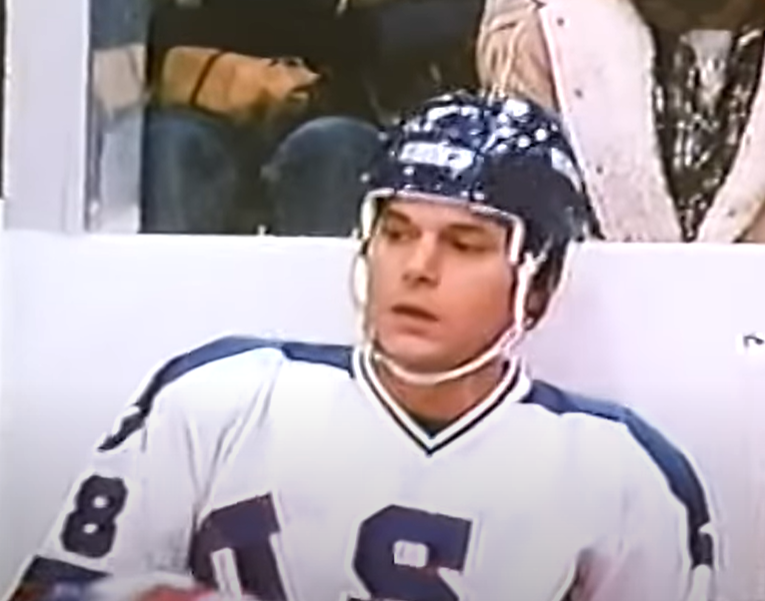 Filmways Television, Miracle on Ice (1981)
Filmways Television, Miracle on Ice (1981)
Harsh Words Woke Them Up To Their Reality
It seemed his words were enough to ignite the fire in the team’s hearts. In the third and final period, they came back and scored three more goals. That brought the score to 4-2 for the US and earned them one of the highest levels of success for the sport.
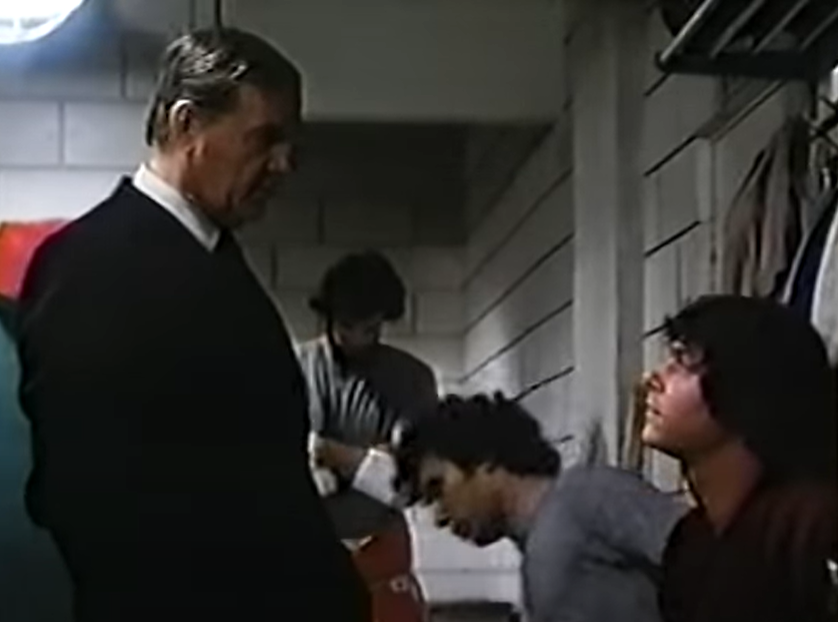 Filmways Television, Miracle on Ice (1981)
Filmways Television, Miracle on Ice (1981)
A Monument To American Conviction
To this day, the Miracle On Ice is looked back on fondly. It is a moment for American patriotism that can’t be forgotten, as it exemplifies many other stories of its ilk. The underdogs came in at a disadvantage in everyone’s eyes, but they pulled through and claimed a victory. A classic American dream.
You May Also Like:
Underdogs Who Shook The World Of Sports
The Biggest Boxing Matches Of All Time
Scandals That Rocked The Sports World

